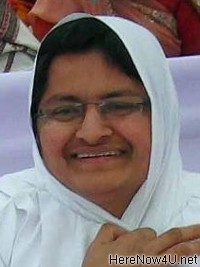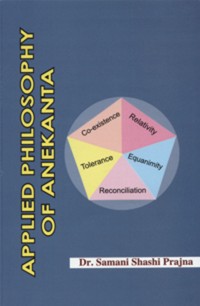At the very outset, it would not be out of place to state here that logic and epistemology have been given important places in the history of Indian philosophical thought right from the very beginning. As a matter of fact, Indian logicians, especially those belonging to the mediaeval age, made significant contributions in the field of logic and here the role of Jain logicians cannot be ignored. They really made logic as something independent of metaphysics and religion. Dr. Satishchandra has observed thus in this context: "By about 450 CE the Buddhist logician Dignāga and the Jain logicians Siddhasena Divākara (5th cent. B.C.), by differentiating the principles of logic from those of religion and metaphysics and laid the true foundation of what is termed as the mediaeval school of Indian logic."[1]
These mediaeval logicians were not so much concerned with ontological categories, which occupied pivotal position in the ancient logic, but they attached more importance to the analysis of knowledge-specially, means of valid knowledge and such other allied problems. In this context, one can study and find even elements of logical and linguistic analysis in Jain philosophy. They propounded their theories of meaning in their own way, which testify to the fact that they were anticipating the modern theories of logical and linguistic analysis in their own way. It may be mentioned here that Siddhasena Divākara was perhaps the first Jain writer to write on systematic logic. Samantabhadra (607 CE) wrote Āpta Mīmāṁsā and this is concerned with exhaustive and critical exposition of the Jain doctrine of naya specially syādvāda or saptabhaṅgī naya. Umāsvāti (2nd cent.-3rd cent. B.C.) and other Jain philosophers have also treated this problem of naya quite clearly and critically.
Umāsvāti rightly thus asserted: "pramāṇa nayairadhigamaú".[2] This means that pramāṇa and naya play their roles in acquisition of right knowledge. Pramāṇa is the means of valid knowledge whereas naya is the standpoint from which one knows things and beings. This conception of naya is the unique feature of Jain logic and epistemology, but the problem of pramāṇa is tackled by all systems of Indian philosophy. So, the doctrine of naya deserves special attention here. Before discussing this doctrine further, it would be proper here to explain what is the distinction between a pramṇa and a naya? A pramāṇa reveals the thing as a whole (sakala-grāhin), while a naya reveals only a portion of it (amśagrāhin). A naya is only a part of a pramāṇa and hence it cannot be identical with the pramāṇa. A pramāṇa is compared to an ocean while nayas or standpoints are like an ocean water kept in different pitchers.[3]
The non-relative onesided view has created many problems in the field of philosophical thought. The anekānta philosophy provides a solution to those problems. It claims that every reality is multi-dimensional in itself, it means, it possesses infinite number of opposing attributes in the very same Reality. Except omniscient people general people can’t comprehend all the aspects of any reality. So anekānta takes help of the weapon of naya i.e. choosing one perspective at a time.
According to the Jaina doctrine of anekānta, all knowledge except omniscience, is relative in its nature. All the perceptions which are true, but incomplete technically known as naya. In the words of Siddhasena, since a thing has infinite characters, it is comprehended only by the omniscient. But a thing becomes the subject matter of a naya, when it is conceived from one particular standpoint. He states:
jāvaiyā vayaṇavayā tāvaiyā ceva honti ṇayavāya.
jāvaiyā ṇayavāyā tāvaiyā ceva parasamayā.[4]
Just as there are as many views of the forms of nayas, as there are the ways of speaking, so there are as many rival (non-Jain) philosophical tenets as there are views of the form of nayas. To see one naya as true and others untrue leads to dogmas technically known as durnaya (assessment of the truth in absolute sense). Thus, naya is a means of undertaking its own exploration of truth without denying the other nayas. The theory of naya is a tool to eradicate all sorts of dogmatism or absolutist view in the truth.
 Dr. Samani Shashi Pragya
Dr. Samani Shashi Pragya

